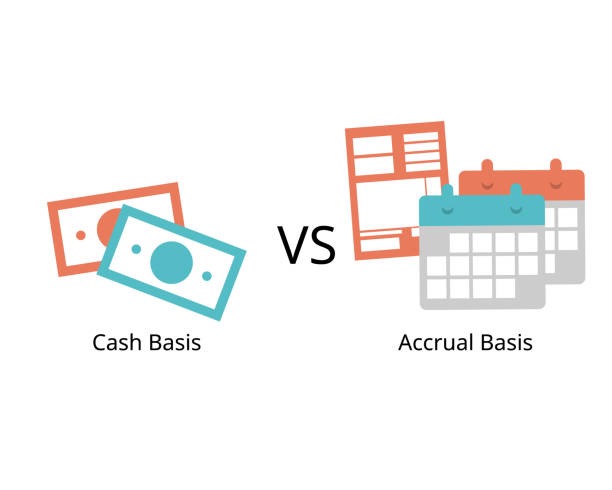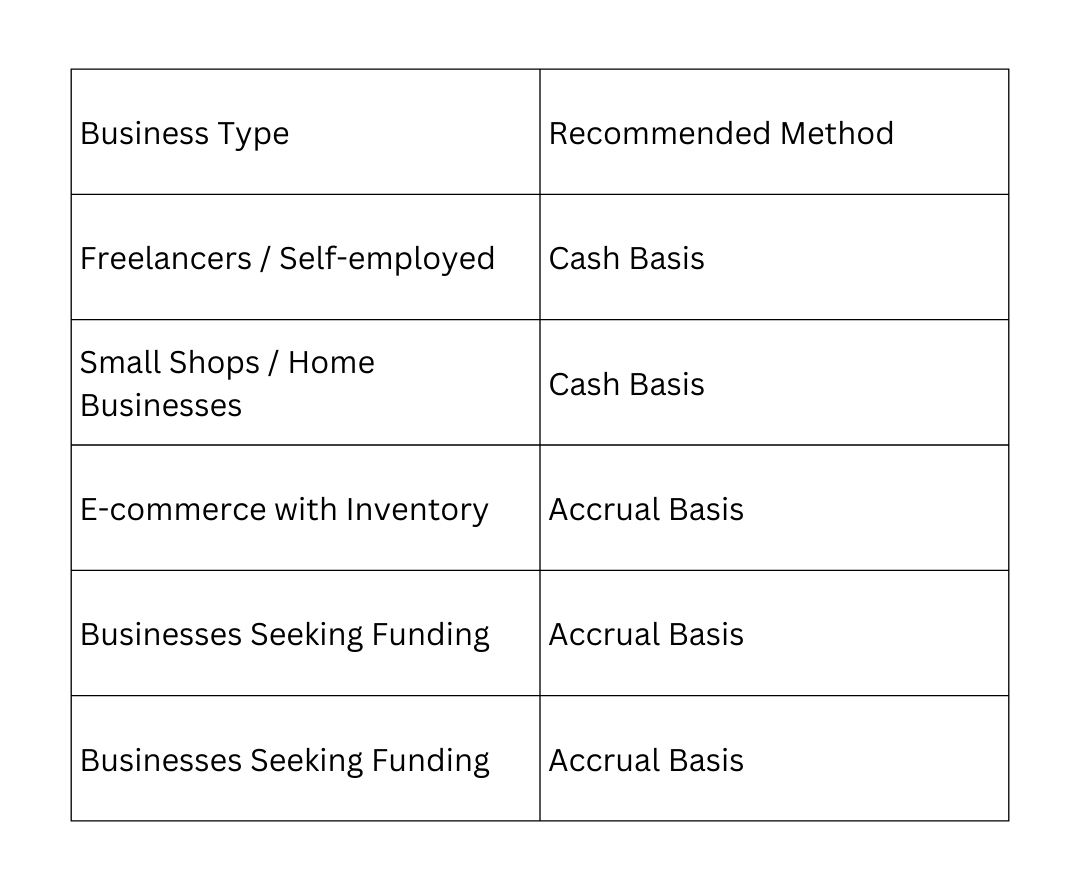
Recording your business’s revenue and expenses may look simple at first—you earn money, you record it as revenue; you spend money, you record it as an expense. In reality, choosing the right accounting method can be confusing.
The two main methods used in business accounting are:
- Cash Basis Accounting
- Accrual Basis Accounting
Both methods have advantages and disadvantages, and selecting the right one depends on your business type, size, and financial goals.
What Is Cash Basis Accounting?
Cash basis accounting records transactions only when money actually changes hands.
- Revenue is recorded when you receive payment.
- Expenses are recorded when you pay for them.
✅ Example 1: You send a customer an invoice on November 15, but they pay you on December 15. Under a cash basis, you record the revenue in December when you actually receive the money.
✅ Example 2: You receive a repair service on December 20, but you pay the bill on January 20. The expense is recorded in January, when the cash is paid.
What Is Accrual Basis Accounting?
Accrual accounting records revenue and expenses when they are earned or incurred, regardless of when money is received or paid.
- Revenue is recorded when a customer owes you money (invoice issued).
- Expenses are recorded when you receive a product/service, even if you haven’t paid yet.
✅ Example 1: You send a customer an invoice for $500 on November 15, but they pay on December 15. Under accrual accounting, the revenue is recorded in November.
✅ Example 2: You get your computers repaired on December 20 but pay the bill in January. The expense is recorded in December when the service was performed.
Cash Basis vs. Accrual Basis Accounting: Key Differences

Advantages & Disadvantages
Cash Basis Accounting
Advantages
- Simple to understand and implement
- Easy to track actual cash in hand
- Taxes are paid only when money is received
Disadvantages
- Doesn’t give a true picture of profitability
- Not suitable for businesses with inventory
- Limited use for financial planning
Accrual Basis Accounting
Advantages
- Provides an accurate financial picture
- Matches income and expenses properly (follows the Matching Principle)
- Required for businesses that must follow GAAP
Disadvantages
- More complicated bookkeeping
- Requires more time and resources
- May show profit without actual cash available
Which Method Should You Choose?
The right method depends on your business type and financial goals:
- Cash Basis → Best for small, home-based businesses, freelancers, or contractors with simple transactions and predictable cash flow.
- Accrual Basis → Best for growing businesses, companies with inventory, or those required to follow GAAP/IRS rules.
📌 Rule of Thumb:
- If your business earns less than $25 million in annual revenue, you can usually choose either method.
- Once your business grows and requires outside financing or investors, accrual accounting is often necessary.
Quick Comparison Table:

FAQs
- Which method is easier?
Cash basis accounting is simpler and faster, which is why many small businesses prefer it. - Which method gives a more accurate picture?
Accrual basis accounting, because it records income when earned and expenses when incurred. - Can I switch from cash to accrual accounting?
Yes, but it requires adjustments and should be done with the help of an accountant. - Is cash basis accounting GAAP-compliant?
No. Only accrual accounting meets GAAP standards. - Do I have to use accrual accounting?
Yes, if your business revenue exceeds $25 million annually or if you are required by tax law or lenders.
Final Thoughts
Choosing between cash basis and accrual basis accounting depends on your business’s size, complexity, and future plans.
- If you want simplicity and cash tracking, go with Cash Basis.
- If you need accuracy, growth, and compliance, choose Accrual Basis.
👉 Still unsure? A professional bookkeeper or tax advisor can guide you on the right method and even help you switch when your business grows.
